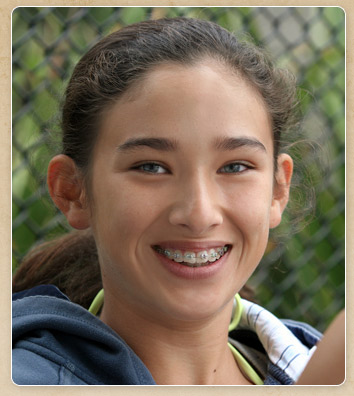 Spring is finally here, and one of the busiest sports seasons is upon us. April is National Facial Protection Month - a great time to remind you how critical it is to protect your teeth, whether you are playing full-contact lacrosse or a game of pick-up basketball. Today, we thought we'd answer some of the most frequently asked questions we get from patients:
Spring is finally here, and one of the busiest sports seasons is upon us. April is National Facial Protection Month - a great time to remind you how critical it is to protect your teeth, whether you are playing full-contact lacrosse or a game of pick-up basketball. Today, we thought we'd answer some of the most frequently asked questions we get from patients:
Q: Why do I need to wear a mouth guard?
The number one way to protect your head, face, and teeth is to wear a proper fitting mouth guard. What many people don’t realize is that a mouth guards not only protect your teeth from injury, they also help protect the jaw joints, prevent other jaw related injuries such as fractures of the jaw, and even reduce the chance of a concussion. Mouth guards are particularly important if you are in orthodontic treatment with brackets and wires. A blow to the face with braces often results in abrasions and cuts inside your mouth from your soft tissue being pressed against your orthodontic appliances.
Q: Does my child need to wear a mouth guard if she/he doesn't have any adult teeth yet?
Absolutely! The idea that your children don't need to protect their baby teeth is a fallacy. Those teeth serve a purpose, such as acting as space holders until the adult teeth are ready to erupt. They also help provide a guide for the adult teeth, so protect them at all times.
Q: If I'm hit in the mouth, and a tooth gets knocked out, what should I do?
- Find the tooth;
- Hold the tooth by the crown (the surface farthest from the gumline), not the root;
- If it is an adult tooth, try to put the tooth back in the socket right away. If the tooth cannot be put back in the socket, store it in cold milk (do not store in tap water);
- Bite down on a gauze pad to relieve bleeding and discomfort;
- Call your dentist immediately. If you are in orthodontic treatment, also call our office to schedule an appointment for repair of any damage to your appliances.
Q: Can my teeth be fixed if they are chipped, broken or knocked out?
In most cases, if you see a dentist immediately after a tooth injury occurs, the tooth can be fixed. Unfortunately, the long-term health of the injured tooth may be compromised.
Q: Are sports drinks bad for my teeth?
According to a study from the University of Maryland Dental School, most sports drinks and energy drinks weaken tooth enamel. They are even harder on your teeth if you are wearing orthodontic appliances such as braces, retainers or aligners. It's the acid in these sugary drinks that dissolves tooth enamel. Dr. Godwin recommends that you avoid all sports drinks and reach of water to keep you hydrated.
Q: Can I still play sports while wearing my retainer, or is it best to take it out?
Because retainers are often lost or stepped on while playing sports, it is best to remove your retainer while playing sports and use your mouth guard instead.
We hope this Sports Safety Q & A helps. Remember to play it safe this sports season so that you can stay off the bench and in the game!
